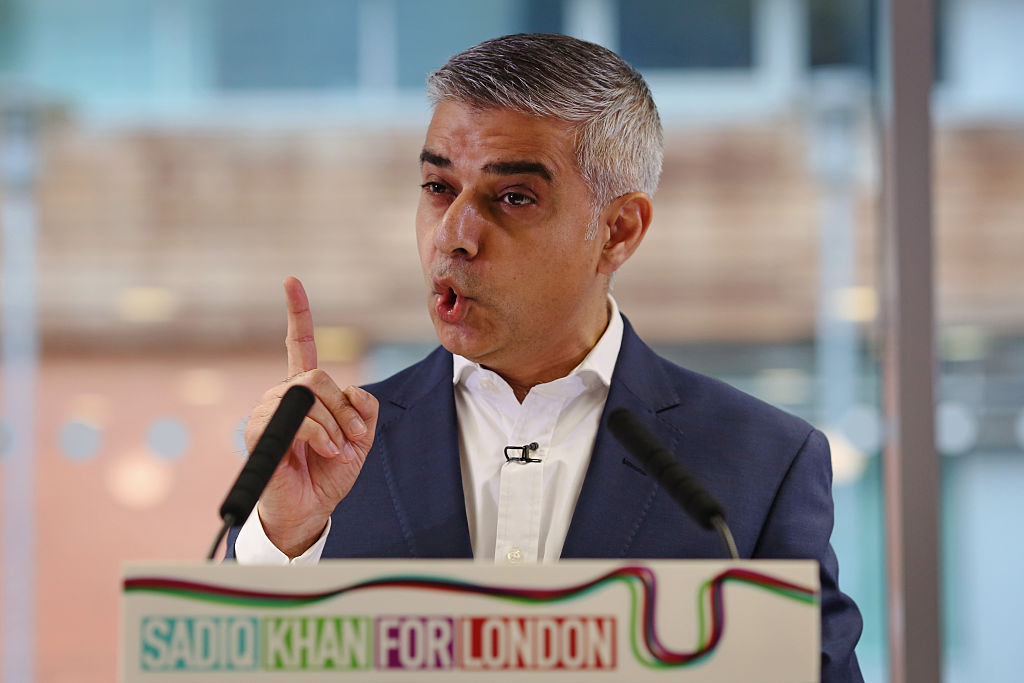Sadiq Khan has been busy. But the mayor of London isn’t snowed under trying to deal with the capital’s knife crime epidemic. Instead, he is facing down a bigger demon: junk food. This morning, Khan has been touring the studios unveiling plans to ban adverts for unhealthy food on London’s tubes and buses. It is clear the mayor has got his priorities all wrong. What’s more, this censorship is bad for free speech. It also does very little to actually deal with what Khan calls the ‘ticking timebomb’ of childhood obesity.
The press release announcing the plan tells us that almost 40 per cent of London 10- and 11-year-olds are ‘overweight or obese’. This is typical of claims made for interventionist public-health policies, in that it lumps together the mildly chubby with the unhealthily obese in order to create a high number. Despite the scaremongering, the reality is that a very small proportion of children in the UK have a serious weight problem. In such cases, what is needed is medical help, not bans on adverts for burgers and chocolate bars.
It also hardly seems right to say obesity is a ‘ticking timebomb’ when, according to NHS figures, childhood obesity rates in England peaked over a decade ago. So the obesity ‘timebomb’ we were warned about – and which Khan has again referred to – has never gone off. The kids we fretted about in the mid-noughties, who munched on turkey twizzlers and were the subject of handwringing shows like Jamie’s School Dinners and Honey, We’re Killing the Kids, have long since become adults without dropping dead. So can today’s kids really not be trusted with being occasionally exposed to pictures of a Big Mac?
After all, the idea that adverts on the tube or buses are the thing prompting children to eat ‘junk’ is laughable. Primary school children have little or no choice in what they eat. Secondary school children bunking off at lunchtime to the chicken shop want something tasty and to escape the watchful eyes of teachers for a few minutes. The cheap-and-cheerful places they eat are not the kind of businesses that will ever have the budget for advertising. While the junk food ban is supposedly aimed at childhood obesity, ‘think of the children’ actually means ‘please bow down to this illiberal policy that affects everyone’.
Khan’s policy is an attempt to grab some headlines for a wider anti-obesity strategy that is also targeting takeaways, despite the fact that there is no evidence to show the number of such outlets in an area has any relationship to obesity. The announcement is also designed to put pressure on the Tories to impose a wider advertising ban on foods high in fat, sugar and salt. But has the mayor really thought these plans through? Does a ban on foods high in sugar, salt and fat also mean a ban on adverts for butter, olive oil, cheddar, orange juice and posh honey? Or is it just for snack foods, burgers, pizzas, chocolate and savoury snacks? Do those foods have a different effect on our bodies because certain sections of the middle class disapprove of them?
Khan’s policy also hits London taxpayers. Transport for London will lose revenue from those adverts. Who makes up that shortfall? Will fares rise as a result as this harebrained scheme?
The biggest problem with this policy, though, is that it is more evidence of politicians trying to decide what we are allowed to see and read. Companies hoping to promote legal products will be denied the opportunity to do so. We are not to be trusted to decide for ourselves, it seems. Instead, Khan wants to ‘help Londoners make healthy food choices for themselves and their families’, by removing images, lest our impressionable minds be influenced. The mayor seems to think the best way to tackle inequality is to patronise us.
So while Khan uses his powers to generate useless policies to tackle the overblown risk of obesity, something that really is killing the kids – knife crime – has become a serious problem on his watch. What is Khan’s answer to that?






Comments